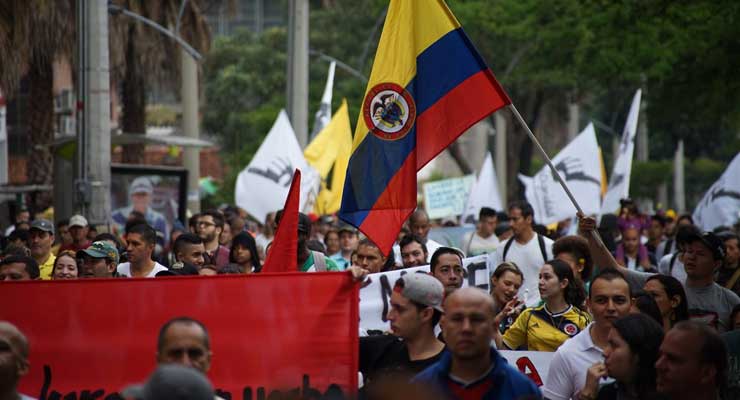 This article by Theresa Bachmann is published by Global Risk Insights. Here is an excerpt:
This article by Theresa Bachmann is published by Global Risk Insights. Here is an excerpt:
Colombia is nominally one of the oldest democracies on the American continent. Contrary to most other South American countries, Colombia has never been ruled by military dictatorships and regular elections have been maintained even amidst a decades-long armed conflict. Developed with strong popular input, the 1991 Constitution defines Colombia as a participatory democracy. Since 2015, presidents can no longer seek re-election.
Yet, numerous deficiencies remain. As such, democracy in Colombia co-exists with a woebegone history of violence and serious human rights abuses. Particularly outside of major urban areas, the limited state presence and the absence of guarantees severely limits political rights and civil liberties until recently. Tellingly, the 2016 peace agreement between the Colombian government and the FARC-EP guerrilla (Revolutionary Armed Forces of Colombia – People’s Army) includes an entire chapter aiming at the guarantee of political participation for ex-combatants and Colombia’s civil society more generally. Meanwhile, even elections are not without their problems. Apart from violence-related risks, the Colombian Electoral Observation Mission further identified several risk factors associated with electoral fraud, institutional weakness, transparency and security of the electoral process, communication as well as participatory limitations. Ahead of the 2022 national elections, it therefore classified approximately one third of Colombia’s municipalities as “at risk”, including the majority of municipalities in the regions most affected by the armed conflict.
Legislative Elections 2022: Contestation and Recount
Against this background, Colombians went to the polls on March 13 to elect the new Congress and some parties’ candidates for presidency. In addition, victims of the Colombian armed conflict were called for the first time ever to directly send 16 representatives into Congress for the so-called peace seats. Ahead of the hotly-contested first round of the presidential elections this month, these legislative elections not only determined the space of manoeuvre for the incoming president but were widely regarded as an important barometer of the prospects of the candidates running for presidency. Yet, while a recent spike in violence as well as allegations of intimidation had already sparked criticisms before election Sunday, the actual events escalated into what some observers qualify as the worst crisis of Colombia’s democracy in decades.
What happened?
Read the full article here.
Leave a Reply